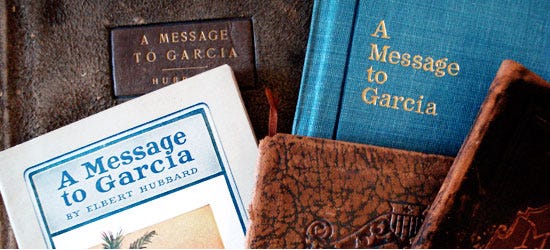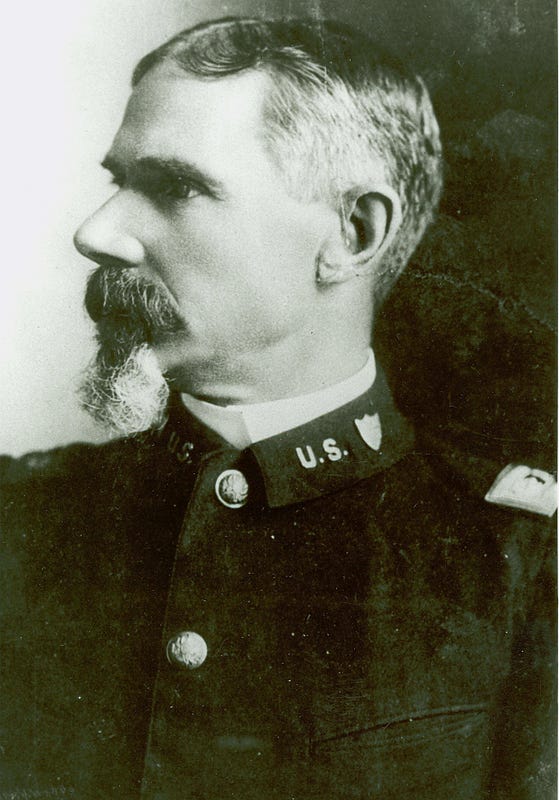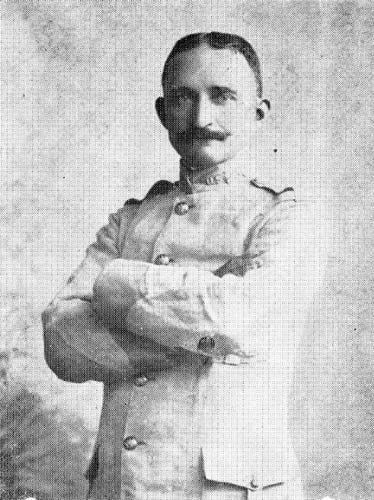
The following post was provided by Robert “Birddog” AuBuchon, a Title 10 Army National Guard Officer currently serving as a staff officer at the National Guard Bureau. A former Cavalry Troop commander, husband, and father; he is a veteran of both theaters of Iraq and Afghanistan. He is a proud member of the Commonwealth of Virginia’s National Guard. The views expressed in this post are those of the author and do not necessarily reflect those of the Virginia Army National Guard, the National Guard Bureau, the Department of the Army, or the Department of Defense.
Many of us have heard the story of Lieutenant Colonel Andrew Summers Rowan. If you haven’t, take a few minutes and read what is probably the world’s most published essay, “Be Like Rowan” and acquaint yourself with the story of then-First Lieutenant Rowan in what is arguably the world’s most published essay. I first heard the story when my squadron executive officer told me to “Take a message to Garcia…” in relation to a task he had assigned to my troop. I must have looked at him like he had two heads, because he threw that tiny little book at me and told me to read it. Only then I would understand. And I did… I do. I implore you to read the story for yourself, but only after reading my bit of writing on a subject related to the story.
To understand what I am writing about, I’ll give you a bit of background. On February 15, 1898, an explosion rocked the Havana harbor, sinking the USS Maine. High tensions already existed between Spain and the United States, but this was a tipping point. War with Spain seemed all but inevitable. But before declaring war, President McKinley wanted to ensure he had the support of the Cuban rebels led by Calixco y Inigues Garcia. President McKinley asked the Army to “deliver a message to Garcia” asking for the rebels support.
 What happened next is important to the story. Colonel Arthur Wagner, then head of the Bureau of Military Intelligence, was asked by President McKinley, “Where can I find a man who will carry a message to Garcia?” Colonel Wagner immediately replied he knew a young officer in Washington who could carry out the mission.
What happened next is important to the story. Colonel Arthur Wagner, then head of the Bureau of Military Intelligence, was asked by President McKinley, “Where can I find a man who will carry a message to Garcia?” Colonel Wagner immediately replied he knew a young officer in Washington who could carry out the mission.
Colonel Arthur Wagner
Lieutenant Rowan was summoned during a lunch at the Army/Navy Club and he left the next day from New York to begin his journey. Through any number of harrowing experiences and with little guidance other than “Take a message to Garcia”, Rowan did just that: he delivered the message to Garcia.
But back to my point, we need more Rowans and Wagners in the military. Let me tell you why.
We need more leaders who know the inherent strengths of their people and trust them to complete a task. Our leaders must invest the time to learn the strengths and weaknesses of their people, and empower them to complete complex tasks without undue supervision. Who among us can, without hesitation, name an individual to lead and complete such a task? Colonel Wagner provided such information to the President of the United States in a moment and staked his reputation on a lieutenant for the task. Who are our Colonel Wagners today?
Lieutenant Andrew Rowan
 As for Lieutenant Rowan, he provided an example of followership we should all emulate. Once he clearly understood the task and the reason behind it, he set off with a single-minded focus of completing his assigned mission. He didn’t let anything get in his way and remained focused on his task to the end, delivering President McKinley’s message to Garcia. For his efforts, Lieutenant Rowan was awarded the Distinguished Service Cross. In 1945, he was hailed as a national hero during his interment at Arlington National Cemetery.
As for Lieutenant Rowan, he provided an example of followership we should all emulate. Once he clearly understood the task and the reason behind it, he set off with a single-minded focus of completing his assigned mission. He didn’t let anything get in his way and remained focused on his task to the end, delivering President McKinley’s message to Garcia. For his efforts, Lieutenant Rowan was awarded the Distinguished Service Cross. In 1945, he was hailed as a national hero during his interment at Arlington National Cemetery.
The next time you’re tasked with a mission, go out and “Take a message to Garcia.”
No comments:
Post a Comment